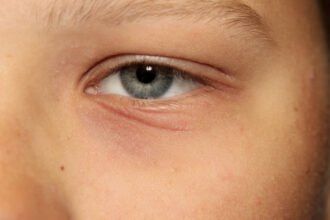Eating disorders affect around 24 million people in the United States every year, and more than 70 million around the globe. The National Institute of Mental Health estimates that one in five women have dealt or are dealing with an eating disorder of some type. For a mental illness that affects so many people worldwide, it is still difficult for doctors to develop an effective treatment plan and to build a beneficial relationship with their patients when treating these eating disorders. What Are Eating Disorders? Anyone in the medical field is no doubt familiar with the subject of eating disorders, but let’s go over them just to refresh our memories. Eating disorders are defined as a form of mental illness in which the patient has any sort of abnormal eating habit. These disorders fall into four categories:
- Anorexia Nervosa – patients severely restrict food intake and lose enormous amounts of weight, either by starvation or excessive exercise.
- Bulimia Nervosa – patients binge-eat, or consume large amounts of food, and then vomit or use laxatives to remove the extra calories that were consumed.
- Binge Eating Disorder – patients binge-eat, similar to patients with the previously mentioned bulimia nervosa, but do not take an action to compensate for the extra calories.
- Other Specified Feeding or Eating Disorder (OSFED) – any eating disorder, as diagnosed by a medical professional, which does not fall into any of the other three categories.
The first step toward creating a successful treatment plan for any of these eating disorders it to properly diagnose them. Treating a patient with binge eating disorder the same as you would for a patient with anorexia is not going to work. For most, though, the clinical side of the treatment isn’t the problem. We know how to treat the severe malnutrition that comes with anorexia and bulimia, the weight gain that comes with binge eating disorder and any other physical symptoms that these disorders might throw at us. The problem lies in the human side of things – treating these patients as the human beings they are, regardless of their situation or mental health. That, above all else, is what we’re here to discuss today: How to build a relationship with your patient that will be beneficial during their treatment and recovery. Two Sides of the Same Coin Keep in mind that when you’re treating an eating disorder, it’s not only a physical illness but also a mental one. You cannot separate the two when you’re working toward a treatment plan. The physical and psychological aspects of the disorder are two sides of the same coin and you can’t treat one without treating the other. If treating one aspect of an eating disorder is outside of your specialty, don’t let professional pride prevent you from asking for help from a colleague or even someone outside your normal circle of acquaintances. Be Grateful Of the millions of people who suffer from eating disorders every year, very few ever actually obtain treatment. Less than one-third of patients with anorexia will seek the help of a medical professional, and barely 6 percent of bulimia patients will ever seek treatment. That’s why, if you have someone coming to you seeking help for an eating disorder, you should be grateful that a person in such a vulnerable state has come to you for help. Patients who suffer from eating disorders are already in a bad place, both mentally and physically. In addition to the negative stigma these individuals face in regards to their disorder, just reaching out to ask for help is a monumental feat. If one of these patients comes to you for help, be grateful and non-judgmental. Ooze gratitude when you speak with them for the first time, and you will set the stage for a mutually beneficial relationship and recovery for this patient. Know Your Role Knowing your role as a medical professional might seem fairly straightforward: You diagnose, treat and follow up with your patient. Unfortunately, eating disorders don’t fall into that black-and-white roadmap and treatment plans are always in shades of grey. What is your role in the treatment of eating disorders?
- Prevention: As the old saying goes, an ounce of prevention is worth a pound of cure. In this case, it doesn’t matter what specialty you went to school for. Medical professionals of any type can learn the warning signs of eating disorders and take steps to help prevent the disorders from manifesting, or referring the patient to a specialist in the event that it becomes necessary.
- Diagnosis: Once an eating disorder becomes a problem, proper diagnosis is the next role you will step into. Physical exams, labs and a psychological evaluation are all vital tools to craft an accurate diagnosis.
- Treatment: While this may seem like the most important role you’ll step into, it’s actually the second most important. This role consists of creating an adaptable treatment plan with your patient to determine the best way to treat both the mental and physical aspects of this disorder. A secondary role here could be “Teammate”, if after meeting with your patient you and they decide that a collaborative treatment plan with other specialists is the best course of action.
- Support: This is arguably the most important role you will step into while treating eating disorders. While you can offer all the treatment options in the world, as with any mental illness, it’s really as much up your patient as it is up to you. What you can and should do is offer support. Be available, or make sure someone is, in the event of an emergency or relapse or if they just need someone to talk to.
With these points outlined, you’ve probably got a pretty good idea of your role during the treatment of an eating disorder, but it leaves out one important tip: Be human. Being Human This might seem pretty self-explanatory, but you’d be surprised how hard it is for some people. The most important thing you can do, from the moment that you receive your degree to the day you hang up your stethoscope for retirement, is be human. Put yourself in their shoes, walk a mile as your patient, whatever works for you – but remember that when you’re treating a patient, you’re treating a fellow human being. If you want to build a good relationship with your patient, start by being an approachable person rather than a hard-to-reach medical professional. Cover all your bases and manage the treatment plan accordingly, but don’t forget that your patients are people too.








